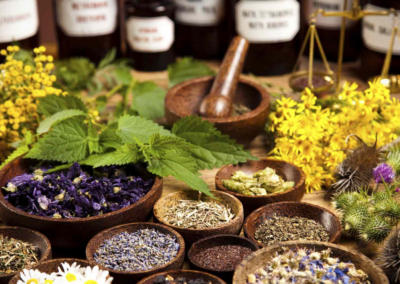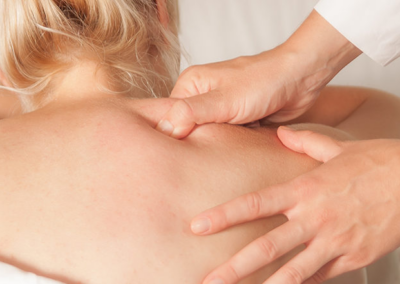Imagine a healing system that harnesses your body’s innate power to heal itself, viewing symptoms not merely as issues to be silenced, but as indicators of deeper imbalances. Welcome to the world of homeopathy, a realm where minuscule doses can yield significant effects, and where the adage ‘like cures like’ is not only acknowledged but is indeed the foundational principle.
Homeopathy, derived from the Greek words ‘homeo’ meaning similar and ‘pathos’ meaning suffering, is an alternative medical practice with roots that can be traced back to the late 18th century. Its emergence was a direct response to the often harsh medical practices of the time, a plea for a more gentle, individualized approach to healing.
This medical system was conceived and developed by Dr. Samuel Hahnemann, a German physician who was disheartened with the traditional medicine of his era. Hahnemann found the health philosophies of the time to be invasive and harmful, often leaving patients in more pain than they initially were. In his quest for a more sympathetic healing method, he stumbled upon the concept of ‘like cures like,’ which laid the cornerstone for homeopathy.
‘Like cures like’, or the law of similars, proposes that a substance causing symptoms in a healthy individual can cure similar symptoms in a sick person when given in minute doses. This concept was not new, with echoes found in the writings of Hippocrates, the father of medicine, and Paracelsus, a pioneer of pharmacology. However, it was Hahnemann who established it as a systematic practice, marking the birth of homeopathy.
Over the last two centuries, homeopathy has encountered both praise and skepticism, enduring the tides of time to emerge as a globally recognized alternative health care system. Whether you’re an ardent believer, a vehement skeptic, or merely curious, the journey of homeopathy through history is a fascinating narrative of resilience and evolution. As we delve deeper into the world of homeopathy in this article, let’s explore its nuances, principles, applications, and caveats to appreciate this unique form of holistic healing.
What is Homeopathy?

As you embark on understanding homeopathy, you enter a realm of medicine that challenges conventional paradigms and brings forth an intriguing perspective on health and disease. Homeopathy is not just another medical system; it is a philosophy, a way of viewing the body and its journey through illness and health.
Homeopathy was born in Germany, the brainchild of Dr. Samuel Hahnemann. Dissatisfied with the aggressive medical practices of his time, Hahnemann sought a more compassionate, individualized approach to healing. His answer lay in a principle that was simple yet profound: ‘like cures like,’ otherwise known as the Law of Similars.
But what does ‘like cures like’ imply? Let’s take an example. Have you noticed how cutting an onion often makes your eyes water and your nose run? Now consider a case of the common cold or an allergy that presents similar symptoms – watery eyes and a runny nose. According to the Law of Similars, the substance that causes these symptoms in a healthy person (the onion, in this case) can be used to treat a person suffering from similar symptoms. This is the essence of homeopathy.
However, the practice of homeopathy isn’t as simple as consuming raw onions for a cold. In homeopathy, the chosen substance undergoes a meticulous process of dilution and succussion (shaking) known as potentization. This process transforms the raw material into a homeopathic remedy, which, when administered in minute doses, can stimulate the body’s inherent healing abilities.
In essence, homeopathy is more than a system of medicine; it’s a holistic approach that considers the patient’s overall physical, mental, and emotional constitution. It sees symptoms not as enemies to be vanquished but as the body’s attempt to restore balance, to heal. Homeopathy uses these symptoms as a guide, a map that leads to the appropriate remedy, thereby enabling the body to find its way back to health.
How Does Homeopathy Work?

To understand the functioning of homeopathy, we must venture into its three fundamental principles: the process of potentization, the concept of the vital force, and the principle of the minimum dose. These pillars not only make homeopathy unique but also lend it a holistic character that emphasizes individualization and harmony.
Potentization
Homeopathy begins with a meticulous preparation process known as potentization. This process includes the steps of serial dilution and succussion (vigorous shaking). The starting material, which could be derived from plant, animal, mineral, or synthetic substances, is diluted in a specific ratio with alcohol or distilled water. After each dilution, the mixture is succussed, which homeopaths believe activates the ‘vital energy’ of the diluted substance. Despite the high dilution levels, the final remedy is believed to retain a ‘memory’ or ‘imprint’ of the original substance, which can stimulate the body’s healing response.
Vital Force
The concept of the vital force is central to understanding homeopathy. This force is considered an invisible energy or life force that maintains the body’s equilibrium and promotes health. When this vital force is disrupted due to physical, emotional, or environmental factors, symptoms of illness appear. Homeopathic remedies aim to stimulate the vital force, encouraging the body’s self-healing abilities to restore balance and health.
Minimum Dose
Another distinguishing feature of homeopathy is the principle of the minimum dose. According to this principle, the least amount of medicine is used to provoke a healing response in the body. This principle explains why homeopathic remedies are often given in extremely diluted forms. The objective is to use the minimum dose necessary to evoke a healing response, thereby minimizing the risk of adverse effects.
Common Uses of Homeopathy
The wide array of homeopathic remedies allows for the treatment of numerous health conditions, each tailored to the individual’s specific symptoms. Though the practice of homeopathy covers an extensive range of ailments, there are some conditions where it’s particularly commonly used:
- Allergies: Homeopathic remedies, such as Allium cepa and Euphrasia, are frequently used to manage seasonal allergies, hay fever, and allergic rhinitis, aiming to decrease sensitivity over time.
- Colds and Flu: Homeopathic medicines like Oscillococcinum, Aconite, and Belladonna have been used to alleviate flu-like symptoms and reduce the severity and duration of these illnesses.
- Mental Health Conditions: Homeopathy takes a holistic approach to mental health, focusing on the person as a whole rather than merely on the symptoms. Remedies like Ignatia, Pulsatilla, and Arsenicum album are frequently prescribed for conditions such as anxiety and mild-to-moderate depression.
- Digestive Disorders: Homeopathy offers remedies for a variety of digestive issues such as heartburn, constipation, and irritable bowel syndrome (IBS). Nux vomica, Lycopodium, and Carbo vegetabilis are examples of remedies used in these cases.
- Skin Conditions: Homeopathic remedies like Sulphur, Graphites, and Apis mellifica have been used to treat conditions such as eczema, acne, and psoriasis.
- Chronic Fatigue Syndrome and Fibromyalgia: Homeopathic remedies such as Gelsemium and Rhus tox have been employed to manage symptoms associated with these conditions.
The benefits of homeopathy can be plentiful. Its holistic approach looks beyond mere symptom suppression, aiming to address the root cause of the ailment. Homeopathy seeks to stimulate the body’s self-healing abilities, promoting recovery and reducing susceptibility to the illness.
Furthermore, the principle of minimum dose ensures that remedies are typically given in highly diluted quantities, minimizing potential side effects. Homeopathy’s individualistic approach, where the treatment is tailored to the patient’s physical, mental, and emotional state, adds another layer of appeal for those seeking personalized healthcare.
Common Brands and Products

As the popularity of homeopathy continues to rise, an assortment of brands has emerged, each offering an array of remedies aimed at treating a variety of ailments. Let’s take a look at some of the leading names in the world of homeopathy and their flagship products:
- Boiron: Established in France, Boiron is one of the world’s leading homeopathic companies. Their extensive product range includes the popular flu remedy Oscillococcinum, the Arnica range for pain relief and bruising, and Calendula creams and gels for skin healing.
- Hyland’s: An American brand founded over a century ago, Hyland’s is well-known for its diverse range of homeopathic medicines. Their products cover a broad spectrum of ailments, with popular products including Hyland’s 4 Kids Cold ‘n Cough, Hyland’s Baby Teething Tablets, and Hyland’s Leg Cramps.
- Nelsons: A UK-based brand, Nelsons is renowned for its range of creams, including the much-loved Arnica Cream for bruising and the Calendula Cream for skin healing. They also produce the Bach Original Flower Remedies and the Rescue Remedy line.
- Schwabe: One of the oldest homeopathic companies globally, the German brand Schwabe offers an extensive range of remedies. They’re well-known for their product Phytolacca Berry tablets for weight management and Alpha SH for sinus headaches.
- Heel: Another noteworthy German brand, Heel produces combination remedies targeting various conditions. Traumeel, an anti-inflammatory and analgesic, and Neurexan, a product aimed at restoring healthy sleep patterns and relieving tension, are two of their most popular offerings.
These brands represent only the tip of the iceberg in the rapidly expanding homeopathic market. However, it’s crucial to remember that while these products are widely available, homeopathic treatment is best carried out under the supervision of a professional homeopath, especially for chronic or serious conditions.
When to Avoid Homeopathy
While homeopathy provides an alternative route for many seeking a holistic approach to healthcare, it is crucial to understand that it isn’t a panacea for all illnesses. Certain situations warrant caution or avoidance of homeopathic treatment altogether, underscoring the importance of informed and responsible decision-making in healthcare.
Severe Acute Conditions: Emergencies such as heart attacks, strokes, severe trauma, or acute infections require immediate conventional medical attention. Homeopathic remedies, due to their gentle and gradual mode of action, are not suitable for such crises.
Specific Chronic Diseases: Certain chronic diseases like cancer, HIV/AIDS, or tuberculosis require a comprehensive approach under the supervision of specialized healthcare providers. Homeopathic treatment should not replace conventional care for these diseases.
Surgery and Postoperative Care: Homeopathy should not be used as a substitute for surgical intervention when necessary. It can, however, be used alongside conventional postoperative care, under the guidance of a medical professional.
Pregnancy and Infancy: Although homeopathy is generally considered safe for pregnant women and infants, it should be used under professional supervision to ensure the safety of both the mother and the baby.
Use of Prescription Medication: If you’re on prescription medication, it’s essential to consult your healthcare provider before starting homeopathy. Certain homeopathic remedies might interfere with the action of your prescribed drugs.
The key to responsible use of homeopathy lies in understanding its scope and limitations. It is crucial to consult a qualified healthcare provider or professional homeopath before starting any homeopathic treatment. Homeopathy can often work well in conjunction with conventional medicine, offering a complementary approach to healthcare.
Is Homeopathy Right for You? Key Questions to Guide Your Decision
The decision to embark on a homeopathic journey is deeply personal, influenced by various factors such as health status, lifestyle, and personal beliefs about healing and wellness. If you’re contemplating whether homeopathy might be the right fit for you, here are a few guiding questions to consider:
- Do you prefer a holistic approach to health? Homeopathy views the person as an integrated whole, treating the mind, body, and spirit together. If you’re seeking a form of healthcare that acknowledges the interplay between physical, emotional, and mental health, homeopathy might be worth exploring.
- Are you comfortable with the idea of your body self-healing? Homeopathy works by stimulating the body’s inherent healing abilities. If you resonate with this idea of tapping into your body’s natural capacity for healing, homeopathy might align with your health philosophy.
- Are you willing to be patient? Unlike many conventional treatments that offer quick symptom relief, homeopathic healing can be a gradual process. It requires patience as the body heals itself over time.
- Are you dealing with chronic or recurring health issues? While homeopathy can also be used for acute conditions, its strength lies in its potential to help with chronic or recurring illnesses, which may not have responded well to other treatments.
- Are you open to an individualized approach to healthcare? Homeopathic remedies are chosen based on a detailed understanding of an individual’s physical, mental, and emotional health. If you’re looking for a personalized approach to healthcare, homeopathy could be an appealing choice.
Remember, these questions are intended as a guide, not a definitive answer. The decision to use homeopathy should be made in consultation with a healthcare professional, considering your unique health history, current health status, and personal preferences.
Furthering Your Homeopathic Journey: Recommended Books, Articles, and Websites
Books
- “The Complete Homeopathy Handbook” by Miranda Castro: A guide to everyday health care, this book is well-regarded for its practical approach to homeopathy.
- “Homeopathic Medicine at Home” by Maesimund B. Panos: This book provides an introduction to homeopathic remedy use for common conditions.
Websites
- National Center for Homeopathy: An organization dedicated to promoting health through homeopathy. Provides a wide range of resources including articles, studies, and a directory of homeopathic practitioners. Visit https://homeopathycenter.org/
- Homeopathy Research Institute: An innovative charity committed to scientific research in homeopathy. Provides resources for professionals and the public. Visit https://www.hri-research.org/
- British Homeopathic Association: A comprehensive resource offering articles, research studies, and a practitioner directory. Visit https://homeopathy-uk.org/







